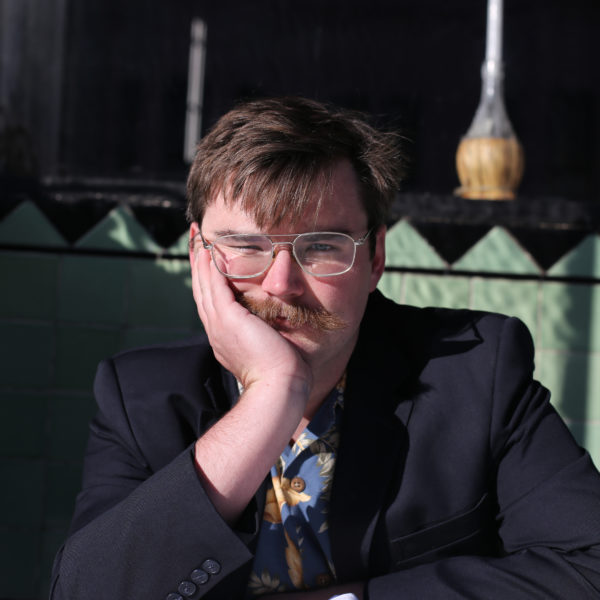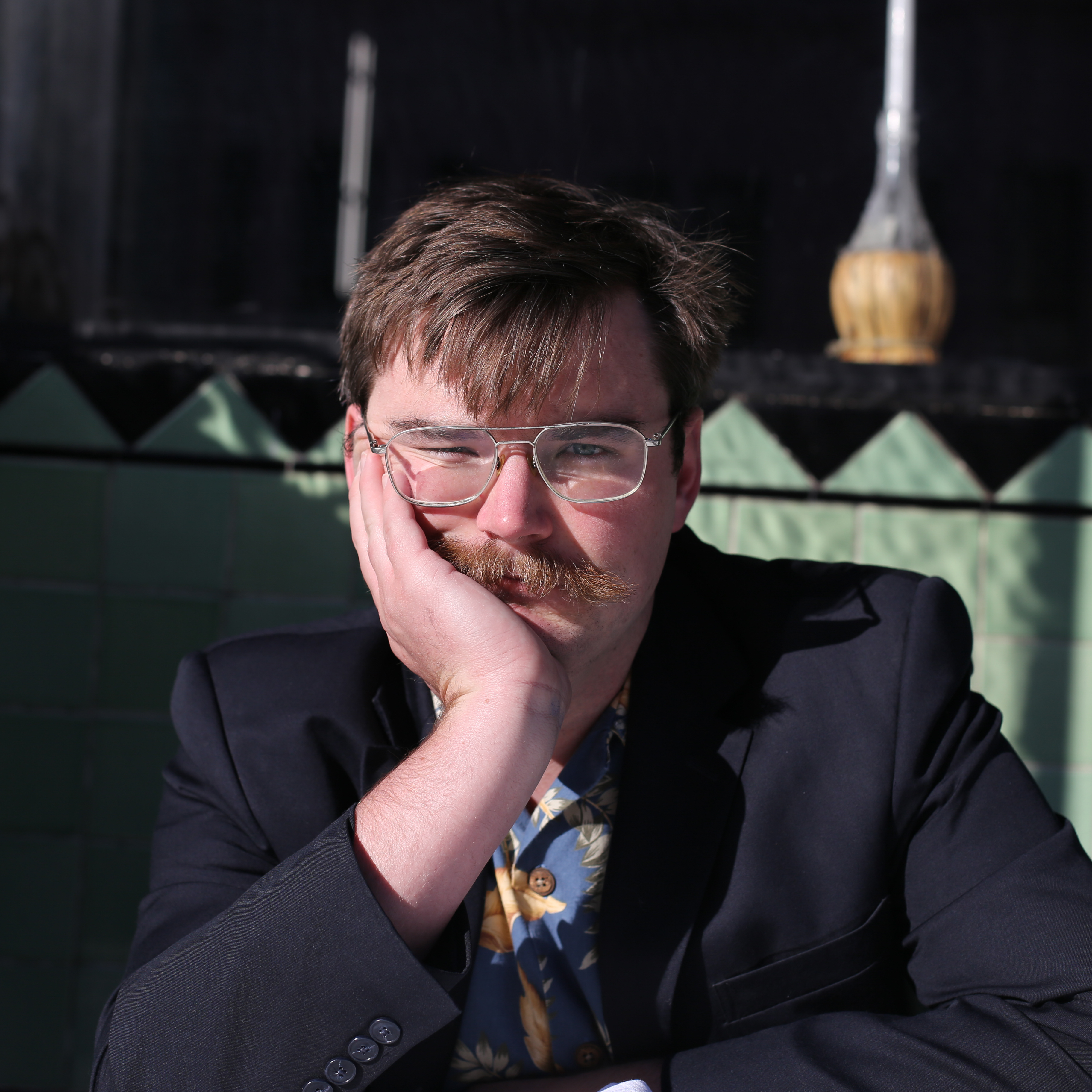
Rooney Pitchford ‘15 had just finished his freshman year at Stanford when he packed up and left for the high desert of Taos, New Mexico. He found work with a local newspaper, holed up in a one-person trailer and passed the time listening and playing along to John Prine, Neil Young and Townes Van Zandt. A few years later, he finished his English degree and left California once more, this time settling in Austin, Texas to write and produce his crowdfunded debut album, “Familiar Places.”
“Familiar Places” is the product of restless travel across America. In a recent video announcing the launch of his Patreon campaign, Pitchford notes: “I’ve been from Austin, Texas to Nashville, Tennessee to New Orleans, Louisiana. From Portland, Oregon to Portland, Maine; San Francisco to New York City. I’ve been to Lexington, Kentucky; Lexington, Virginia; Lexington, Massachusetts …” In another video, he can be seen playing John Prine’s “Paradise” on a roadside in the Kentucky ghost town that originally inspired the tune. While wandering across the country in search of gigs, Pitchford has caught glimpses of America’s many faces and heard its many voices.
Now, with a full year of touring and album promotion under his belt, Pitchford is once again busy adding his own voice to the mix. Earlier this year, he launched a Patreon account where fans can contribute monthly payments to keep his career rolling and gain access to exclusive songs, podcasts and other perks. “I wanna put something out every month, indefinitely,” he told me during a recent phone interview, and he notes that he’s committed to making it worthwhile to support him, not out of charity but out of appreciation for his work.
I first discovered “Familiar Places” in January 2016, a few weeks after it was released. I was immediately struck by Pitchford’s rich baritone, which conveys an earnest sense of weariness from the album’s first syllable. Later tracks like “Picking Wounds” and “Anyway” showcase a more exuberant style, but each returns to the haunting feelings of longing that charge the first song and echo throughout the entire project. It’s a fitting theme, because while the album has notes of rock, blues, folk and gospel, the predominant influence is down-on-your-luck country.
I didn’t fall in love with the album until March, when Pitchford’s wistful heartache began to resonate with events in my own life. A week after my family dog passed away, I received a text from my father saying that his grief had brought him back to “Familiar Places,” which I had recommended offhand a month before and had more or less forgotten about. I gave it another listen, and I, too, quickly found comfort. I began to listen more frequently, started singing along, and by the end of the year it had become, without exaggeration, my favorite album of 2016. (Even as an enthusiastic patron of Stanford’s music scene, I never thought I’d say anything like that.)
I asked Pitchford if he had any idea where this emotional resonance might have come from — did he write it with any particular sadness in mind? — and the question seemed to catch him off guard: “I think my music’s a lot more based in a literary composition than a literal truth, you know.” Pitchford, who studied poetry at Stanford, then seemed to suggest that his lyrics are poetic for the sake of poetry, rather than for the sake of communicating hard truths. He claims that the only lyrics that directly describe his life are found in “CD Jam,” a finger-picking acoustic tune that revisits a late-night songwriting session at Theta Delta Chi, his Stanford fraternity, turning into early morning: “Well dawn’s begun to break, and Jim’s asleep on the patio / We told dirty jokes all night and wrote our songs by candlelight.”

To some, this might raise the question of authenticity, that loaded term that is so essential yet so frustrating to any artist working in a genre like country, where the end result can mean nothing if it isn’t backed up by hard-earned credentials or roots in the craft. Credibility is important, and it’s one of the reasons why not many country musicians grow up in the Bay Area, like Pitchford did. There’s a certain expectation that country singers can speak with authority on the life of small-town America.
Pitchford’s genius lies in his ability to pay homage to these details without ever straying too far from his own lived experience. He has staked a claim in the tradition, not only by hitching a trailer in Taos or by gigging in Austin but by doing what country musicians do best: finding universal truths in the day-to-day and telling stories in unadorned yet poetic detail.
Take the standout track “Southside of Austin,” which combines imagery of the Colorado River and his adopted city with the story of a man waiting desperately for his love to come back “knockin’ some day.” Pitchford packs sorrow, hope and a powerful yearning for the past all into lines like “Another day gone another way, and nobody to witness me / Crying for tomorrow to erase today.” His rhymes may not be literal, but they are packaged in a way that makes them truthful and universal.
More than other genres, country music is about the personality of those who make it. This is why good country can feel so intimate and personal, and even comforting in times of need. It can create the impression that someone — a whole person — is there with you, every time you listen. The best country musicians know this and convey a strong sense of who they are through their music.
When listening to “Familiar Places,” I imagined Pitchford as completely confident and carefree, a superbly talented musician who knows exactly what he’s doing. Whenever I listened to him, I could feel that persona lingering on the other side of the speakers, commanding my attention with either an ecstatic guitar solo or a well-placed rhyme. But after speaking to him over the phone, I was struck by the depth of his humility — he seemed to deflect my praise as much as possible — and I began to suspect that the person I had imagined on the record wasn’t totally in sync with the man himself.
After our interview, I stumbled across some videos of Pitchford playing at the Cheatham Street Warehouse songwriter’s circle in San Marcos, Texas. The videos were recorded a few months before the album’s release and show a visibly nervous Pitchford workshopping a few of his standout tracks: “Becky,” “Familiar Places,” “CD Jam.” He cracks jokes and plays well, but in between songs his eyes dart around the room, and his hands seem lost whenever they stray too far from the guitar. For a brief moment, he buries his face in his palms as he braces to play another song. All the while, the hall echoes with applause — the crowd loves it — but Pitchford himself seems uncertain.
Perhaps these are just performance-night jitters, but coupled with the self-deprecating tone Pitchford struck over the phone, I suspect that the total self-confidence that comes across on the record is at least partly an illusion. If I’m right, I think Pitchford would do well to let another, perhaps more vulnerable side of his personality come out on his next album. By allowing his listeners to get to know him better, he might find more firm footing in the country tradition, too. In any case, what he has already done with “Familiar Places” is nothing short of remarkable: It is a masterpiece of production and songwriting, and it contains some truly astounding lyricism. It flows elegantly without ever getting old, even on the hundredth listen. Most importantly, with this debut, Pitchford has established himself as an artist — and a person — who I can’t help but want to get to know better.
“Familiar Places” is available on Spotify, iTunes and Bandcamp. Pitchford’s Patreon page can be found at patreon.com/rooneypitchford, and a new package of songs will be available to all patrons at the end of January.
Contact Benjamin Sorensen at bcsoren ‘at’ stanford.edu.
